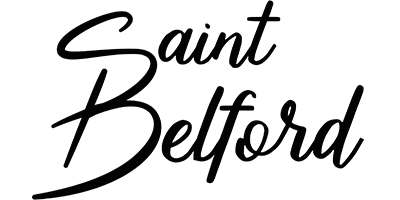Your Cart is Empty
Up to 38% off Undated Bundles! Free shipping to AU & NZ $59+
Up to 38% off Undated Bundles! Free shipping to AU & NZ $59+
Planning with ADHD: why novelty and rituals are better than consistency
September 05, 2023

A common hurdle our Curation users with ADHD (Attention-Deficit Hyperactivity Disorder) face is inconsistency when it comes to planning. Missing a few days can lead to feelings of "failure" and the temptation to abandon the planner altogether.
And we can relate. At times, living with ADHD can be frustrating. You have good intentions to use your planner but are prone to procrastination or feel so overwhelmed that taking time out to plan can feel like a burden.
Of course, the experience is different for everyone. And even if you don't have ADHD, it's easy to have an all-or-nothing mindset when using a planner.
So how can you make the most of your planner when you have ADHD?
We connected with Sydney clinical psychologist Elizabeth Talbot to get some tips on how to approach planning when you have ADHD and cultivate self-compassion along the way.
How can individuals with ADHD effectively use physical planners to improve their daily routines?
People with ADHD have very capable brains. All the parts work well: memory, problem-solving, ideas and perception.
It's the part of the brain, the executive function, that is problematic. The executive function is responsible for planning, organising, and simultaneously keeping competing information in mind.
So the best advice to people with ADHD is to outsource some executive functions. And outsource it to a system located outside of your brain.
A good planner is a great way to outsource some of that executive functioning, provided the ADHDer integrates the planner into their routine.
What are some potential pitfalls that individuals with ADHD may encounter when using planners? How can they avoid or address these challenges?
Putting the planner away in a drawer is a big mistake. Also, perfectionism and feeling like you need to be 100% consistent with using it.
You can use it partially. You can miss days and weeks. You can use it when you need to and pause when you don't.
It's ok to use it differently each day or week. This way, you keep up the novelty, and it doesn't become another dust collector.
How can individuals with ADHD overcome challenges such as forgetfulness or difficulty sticking to a structured planner system?
Keep the planner visible and build it into your routine. Come back to it if you drop off for a period, and remember, it's completely ok if you stop using it for a while.
Use the planner as one of several systems you use and cycle through them to keep things interesting.
It can also help to change how you use the planner. For instance, some weeks keep it simple, for other weeks try colour coding.
Most of all, don't pack it away!
What features of planners are particularly beneficial for individuals with ADHD?
Undated planners are great for people with ADHD. As they are more likely to shift in and out of organisational strategies, an undated planner helps alleviate pressure to use it consistently and is less likely to make them feel like they've "failed" if they miss a day or a week.
Lots of novelty and customisation will also appeal to someone with ADHD, and might encourage more consistent use.
Something that looks great will also help, as you'll want to keep the planner on display rather than tucked away.
Can you recommended any methods for breaking down larger tasks or projects into more manageable chunks within a planner system?
Time-blocking, that is, blocking out periods of the day for separate tasks, can be helpful.
Setting up a central master list of projects or goals that can be referred back to can be helpful.
Also, keeping a visual record of progress can help someone stay on track.
Using a planner can be great for this.
What planning strategies can people with ADHD use to help with time management and task prioritisation?
It's important to incorporate the planner into an existing routine.
Maybe a morning ritual of tea and planning before breakfast. Using the planner to time-block can also be helpful, especially if this can be changed daily to keep up the novelty.
Are there any specific mindfulness or relaxation techniques that can complement the use of planners for individuals with ADHD?
I strongly encourage building a mindful ritual rather than a routine. Routines get boring with ADHD, but rituals can be soothing.
Find a way to ritualise the use of the planner, maybe preceding it with a short meditation or relaxation exercise or accompanying it with a herbal tea in a gorgeous teacup.
Curation 90-Day Undated Planner (Weekly)
allcarthome-page-collectionpdp-collectionundated-planners-and-diaries
Curation 90-Day Undated Planner (Weekly)
$10.36
$12.95
27 reviews
Sale
Curation 90-Day Undated Planner (Weekly)
$10.36
$12.95
27 reviews
Pledge to Stay Well | Mindfulness Journal
allfull-priced-itemsgiftinghome-page-collection
Pledge to Stay Well | Mindfulness Journal
$49.95
11 reviews
Pledge to Stay Well | Mindfulness Journal
$49.95
11 reviews






